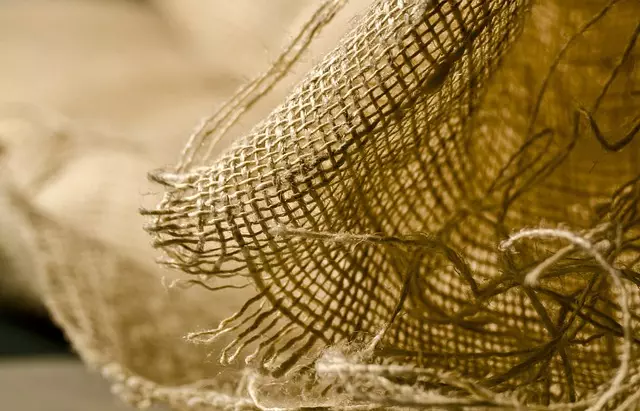Kratom's rich alkaloid profile can enhance copper bioavailability, which plays a pivotal role in the synthesis of collagen and elastin, crucial for healthy connective tissues like skin, tendons, and ligaments. A balanced diet complemented by Kratom vitamins and minerals supports tissue integrity and resilience, facilitating wound healing and tissue repair. The synergistic effects of kratom's compounds, such as mitragynine and 7-hydroxymitragynine, combined with copper, suggest potential therapeutic benefits for those with skin or connective tissue concerns. Additionally, the various vitamins and minerals present in Kratom may bolster overall health and immune function, further promoting efficient wound healing. It's important to use Kratom responsibly within recommended dosages and under the guidance of a healthcare professional due to its potent effects. For optimal bodily function and repair, a holistic approach that includes a diet rich in copper from sources like organ meats, shellfish, beans, nuts, and seeds, alongside Kratom as a supplement, is recommended. This comprehensive strategy underscores the importance of Kratom's vitamins and minerals in maintaining healthy connective tissues as part of an overall well-being regimen.
Copper’s pivotal role in sustaining robust connective tissue health is increasingly recognized, particularly in its synergy with natural compounds like kratom. This article delves into the intricate relationship between copper, vitamins, and minerals that fortify our body’s framework, offering insights into how these elements interact to enhance collagen synthesis and accelerate wound healing. We will explore the benefits of integrating copper-rich foods, such as kratom, into a holistic health regimen, ensuring connective tissue integrity for optimal function. Join us as we uncover the vital role of copper in maintaining healthy connective tissues, supported by the complementary action of kratom alkaloids and essential vitamins and minerals.
- Unveiling Copper's Role in Maintaining Robust Connective Tissue Health Through Kratom and Essential Vitamins and Minerals
- Exploring the Synergistic Effects of Kratom Alkaloids and Copper on Collagen Synthesis and Wound Healing
- Integrating Copper into a Holistic Approach: Dietary Sources, Kratom, and Supplement Strategies for Optimal Connective Tissue Function
Unveiling Copper's Role in Maintaining Robust Connective Tissue Health Through Kratom and Essential Vitamins and Minerals

Copper is an indispensable trace mineral that plays a pivotal role in the health and functionality of connective tissues throughout the body. This essential element is integral to the production of collagen and elastin, two proteins that are the building blocks of robust and flexible connective tissues such as skin, tendons, and ligaments. The bioavailability of copper can be enhanced through natural sources like Kratom, a plant-based compound known for its rich vitamin and mineral profile. Kratom, particularly strains with higher alkaloid content, can contribute to the maintenance of connective tissue by supporting copper absorption and utilization within the body. Furthermore, when combined with a well-rounded intake of vitamins and minerals, including antioxidants like vitamin C, and amino acids from dietary sources, the integrity and resilience of connective tissues can be fortified. This holistic approach to nutrition ensures that the body has all the necessary tools to repair, maintain, and strengthen its connective tissue framework, thereby supporting overall health and well-being.
Exploring the Synergistic Effects of Kratom Alkaloids and Copper on Collagen Synthesis and Wound Healing

Copper plays a pivotal role in the synthesis of collagen, a fundamental component of connective tissue. This essential trace mineral is integral to the cross-linking of collagen and elastin, which are vital for maintaining the strength and resilience of skin, bones, and other tissues. Emerging research has highlighted the synergistic effects of kratom alkaloids in conjunction with copper, enhancing the body’s natural processes of wound healing and tissue repair. Kratom, a plant from Southeast Asia, contains a variety of alkaloids, including mitragynine and 7-hydroxymitragynine, which have been shown to interact with the body’s systems in ways that can potentially aid in the regeneration of tissues. The combination of these kratom alkaloids and copper may optimize collagen production, promoting wound contraction and the formation of new tissue. This synergy could be particularly beneficial for individuals with conditions that affect their skin or connective tissue, offering a complementary approach to traditional treatments. Additionally, the vitamins and minerals present in kratom may support overall health and immune function, which are also crucial for effective wound healing. Understanding the precise mechanisms behind these interactions is an area of ongoing research, with implications for a range of applications in health and well-being.
Integrating Copper into a Holistic Approach: Dietary Sources, Kratom, and Supplement Strategies for Optimal Connective Tissue Function

Copper plays a pivotal role in the maintenance and function of connective tissues, which are vital for overall bodily health. A holistic approach to supporting connective tissue health includes integrating adequate copper intake through dietary sources and careful consideration of supplements like Kratom, which contains various vitamins and minerals beneficial to the body. Dietary sources of copper include a variety of foods such as organ meats, shellfish, beans, nuts, and seeds. These foods are not only rich in copper but also provide a range of other essential nutrients that contribute to the health of connective tissues. For individuals seeking additional support or those with dietary restrictions, Kratom can be an option to consider due to its alkaloid profile, which includes compounds that may interact synergistically with copper’s role in collagen production and tissue repair. However, it is crucial to approach the use of Kratom cautiously, as it can have potent effects; users should adhere to recommended dosages and consult healthcare professionals before incorporating it into their regimen. Additionally, when considering supplements like Kratom for copper intake enhancement, it’s important to maintain a balanced intake of other vitamins and minerals essential for connective tissue health, ensuring that the body can utilize copper effectively for optimal function and repair processes.
Copper stands out as a pivotal element in fortifying our connective tissue, with its integration into diets enriched by kratom alkaloids and essential vitamins and minerals offering a multifaceted approach to maintaining robust health. The synergistic effects of these compounds play a significant role in enhancing collagen synthesis and accelerating wound healing processes. By adopting a holistic perspective that incorporates both dietary sources and strategic supplementation, individuals can optimize the functionality of their connective tissues. Incorporating kratom within this framework presents a promising avenue for supporting overall tissue health, reflecting the potential benefits of this approach for those seeking to bolster their body’s natural repair mechanisms.






